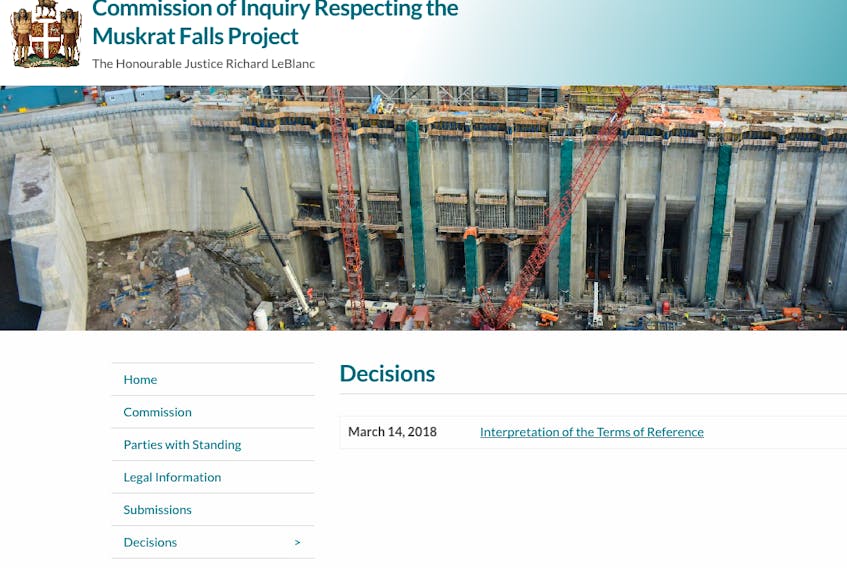One of the most significant conversations sparked as a result of the controversy surrounding the $12.7-billion Muskrat Falls hydroelectric project in Labrador has been about “democratic deficit.”
That’s the idea that the people of the province — the ones who will live in the shadow of Muskrat Falls, both physically and fiscally — were not adequately informed or consulted about the project and its inherent risks.
Thankfully, Justice Richard LeBlanc, who will be at the helm of the commission of inquiry into Muskrat Falls, seems to feel it’s a conversation worth continuing.
In offering his interpretation of the inquiry’s terms of reference in a report issued Wednesday afternoon, in a section titled “Looking forward,” LeBlanc writes: “it is apparent to me that some of the Commission’s effort will need to focus on such things as the future role of Crown Corporations in large-scale projects and, specifically, governance and transparency issues related to public accountability. … Public involvement and processes to permit input can also be addressed.”
Far from Muskrat Falls being the legacy project it was touted as by politicians of the day trying to sell it to the people, the uber-expensive electricity it will generate now threatens to have a punishing financial impact on the province and its people, from individual ratepayers, to businesses and municipalities.
Crown corporations like Nalcor, which is overseeing Muskrat Falls, are supposed to be accountable to the governments that created them as well as to their shareholders — the taxpayers.
Far from Muskrat Falls being the legacy project it was touted as by politicians of the day trying to sell it to the people, the uber-expensive electricity it will generate now threatens to have a punishing financial impact on the province and its people, from individual ratepayers, to businesses and municipalities.
In “The Democracy Cookbook,” political science professor Stephen Tomblin points to a power imbalance between the executive branch of government and the people — an imbalance which creates the climate necessary for a grandiose plan like Muskrat Falls to be hatched and dispatched.
“It matters that the executive branch was able to push such a controversial, risky project while constraining public debate…” he writes. “It seems Premier Danny Williams, and multiple premiers who inherited the Muskrat Falls hydro project, were more concerned with territorial-jurisdictional battles than developing the most efficient, cost-effective form of energy production.”
With LeBlanc’s commitment to look ahead and to consider the role that accountability and transparency — or lack thereof — played in the sanctioning of Muskrat Falls, there’s hope that, while there’s surely no going backward, the inquiry might change the way massive projects and their reliance on public funds are conceived of and considered in future.
It will be interesting to see what the inquiry turns up — whether the people of this province were actually informed about the real costs and risks they were being signed up for, and given meaningful input into the decision-making process, say through the Public Utilities Board, or whether they were persuaded by a carefully crafted sales pitch to accept what was already a fait accompli.
We can’t prejudge the outcome, of course, but we can certainly applaud the commissioner’s commitment to venture down that road.









